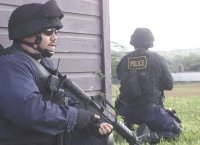In Indiana, state Senator Pat Miller has decided to withdraw a bill that would have required government parenting licenses for people who want to conceive through artificial means.
Sec. 5. (a) A petition to establish parentage may be filed by
an intended parent.
(b) The intended parents must be married to each other, and both spouses must be parties to the action to establish parentage.
(c) An unmarried person may not be an intended parent.
Sec. 6. (a) A petition to establish parentage must be filed in triplicate.
(b) The original copy of a petition to establish parentage must be verified by
the oath or affirmation of each petitioner.
Sec. 7. (a) A petition to establish parentage must be made under oath and
specify the following:
(1) The:
(A) name, age, and place of residence of each petitioner; and
(B) place and date of marriage of the petitioners.
(2) The name and place or residence, if known, of the donor or
donors.
(3) The name and address of the agency that performed the
assessment under section 12 of this chapter.
(4) The name and address of the physician who performed the
medical procedure that resulted in the pregnancy of the child who is
subject to the parentage action.
(5) The type of assisted reproduction procedure that was used.
(6) Whether a petitioner has been convicted of:
(A) a felony; or
(B) a misdemeanor relating to the health and safety of
children;
and, if so, the date and description of the conviction.
(7) Additional information consistent with the purpose and provisions
of this chapter that is considered relevant to the proceedings.
(b) The following documents must be attached to the petition to establish
parentage:
(1) The consent of the petitioners required under section 13 of this
chapter to the medical procedure that resulted in the pregnancy for
the child who is the subject to the parentage action.
(2) The consent of each donor, if known, to the use of the donation for
the assisted reproduction medical procedure.
(3) The certificate of satisfactory completion of the assessment
required under section 12 of this chapter.
(4) The certificate of the physician required under section 14 of this
chapter. …
Sec. 11. … (b) A physician may not commence an assisted reproduction technology procedure that may result in a child being born until the intended parents of the child have received a certificate of satisfactory completion of the assessment required under section 12 of this chapter. …
Sec. 12. (a) Before intended parents may commence assisted reproduction, the intended parents shall obtain an assessment from a licensed child placing agency in the intended parents’ state of residence.
(b) The assessment must follow the normal practice for assessments in a
domestic infant adoption procedure and must include the following information:
(1) The intended parents’ purpose for the assisted reproduction.
(2) The fertility history of the intended parents, including the
pregnancy history and response to pregnancy losses of the woman.
(3) An acknowledgment by the intended parents that the child may
not be the biological child of at least one (1) of the intended parents
depending on the type of artificial reproduction procedure used.
(4) A list of the intended parents’ family and friend support system.
(5) A plan for sharing any known genetic information with the child.
(6) Personal information about each intended parent, including the
following:
(A) Family of origin.
(B) Values.
(C) Relationships.
(D) Education.
(E) Employment and income.
(F) Hobbies and talents.
(G) Physical description, including the general health of the
individual.
(H) Birth verification.
(I) Personality description, including the strengths and
weaknesses of each intended parent.
(7) Description of any children residing in the intended parents’ home.
(8) A verification and evaluation of the intended parents’ marital
relationship, including:
(A) the shared values and interests between the individuals;
(B) the manner in which conflict between the individuals is
resolved; and
(C) a history of the intended parents’ relationship.
(9) Documentation of the dissolution of any prior marriage and an
assessment of the impact of the prior marriage on the intended
parents’ relationship.
(10) A description of the family lifestyle of the intended parents,
include a description of individual participation in faith-based or
church activities, hobbies, and other interests.
(11) The intended parents’ child rearing expectations and values.
(12) A description of the home and community, including verification
of the safety and security of the home.
(13) Child care plans.
(14) Statement of the assets, liabilities, investments, and ability of the
intended parents to manage finances, including the most recently filed
tax forms.
(15) A review of the local police records, the state and violent offender
directory, and a criminal history check as set forth in subsection (c).
(16) A letter of reference by a friend or family member.
(17) A written consent from each donor, if known, to use of the
donation in the assisted reproduction medical procedure.
(18) The recommendation for participation in assisted reproduction.
… (f) After completing the assessment described in this section, and if the child placing agency approves the intended parents to commence the assisted reproduction procedure, the agency shall issue a certificate that the intended parents have satisfactorily completed the assessment and are ready to commence assisted reproduction.
(g) A certificate issued under subsection (f) is valid for two (2) years.
(h) A physician may rely upon a certificate issued under this section to commence assisted reproduction with an intended parent.
(i) A certificate issued under subsection (f) must be filed with the petition to
establish parentage.
… Sec. 14.(a) After a viable pregnancy has been achieved by artificial
reproduction, the physician who performed the artificial reproduction procedure shall issue a certificate to the intended parents stating:
(1) the child was conceived under the care of the physician;
(2) the type of artificial reproduction procedure that was used;
(3) whether the donor is known or anonymous; and
(4) whether the physician is aware of any compensation being paid to
the donor.
(b) The certificate must be:
(1) on the physician’s letterhead stationary; and
(2) notarized.
(c) The certificate required under this section shall be filed with the petition
to establish parentage.
(d) form by x agency?
Sec. 15. (a) If the court finds that:
(1) the petition to establish parentage satisfies the requirements of this
chapter;
(2) the certificate from a licensed child placing agency required under
section 12 of this chapter has been filed and meets the requirements of
this chapter;
(3) the certificate by the physician required under section 14 of this
chapter has been filed and meets the requirements of this chapter;
and
(4) the consent required under section 13 of this chapter has been obtained; the court shall grant the petition to establish parentage and enter a decree establishing parentage without a hearing or further court action unless the court finds by clear and convincing evidence that granting the petition is not in the best interests of the child.
(b) The court may deny the petition to establish parentage if a petitioner has
been convicted of a crime described in section 7(a)(5). …
Sec. 17. (a) If the court dismisses a petition to establish parentage, the court
shall determine the person who should have custody of the child. …
Sec. 20. (a) An intended parent who knowingly or intentionally participates
in an artificial reproduction procedure without establishing parentage under section 15 of this chapter commits unauthorized artificial reproduction, a Class B misdemeanor.
Good thing they lost this one.


